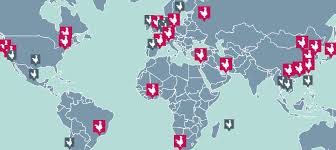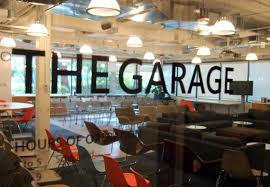All this mixing of metaphors seems timely given the current debate over Diligent Corporation [NZX: DIL] and its likely sale and exit from New Zealand. People on one side of the debate bemoan foreign sales and suggest this is why we should stick to our primary production knitting. Those on the other side suggest offshore sales are fine since the money reenters into the economy via the oft-quoted “rinse and repeat” cycle.
To be honest, both sides simplify things with their arguments and I think it’s time for New Zealand to think a bit more deeply about what we want our economy to look like.
We’re not, and never will be, Silicon Valley.
It frustrates me when people glibly suggest that New Zealand should create a mini-Silicon Valley down here in the South Pacific. Silicon Valley only exists in one place and is a unique creation of a number of factors including a university that was founded on the idea of entrepreneurship. Leland Stanford created the university as a memorial to his 15-year-old son who died of typhoid. The university was to be co-educational (a rare thing at that time) and, above all, designed to produce practical members of society. This wasn’t about research for research’s sake, Leland Stanford, a railroad magnate, wanted to produce research which was focused on commercial possibilities.
Add to that a hub of military research, significant funding streams for startups, a cultural focus on technology generally, and entrepreneurship specifically, and you have a unique place. Silicon Valley the product is very much a product of the crucible of Silicon Valley the place. We’d be advised to remember this.
But there are more reasons beyond viability to not want to recreate Silicon Valley in Auckland, Wellington or Christchurch. I’m lucky enough to spend a huge amount of time in “The Valley” and while I’d be the first to suggest that it is an exciting and bustling place, I’d also hate to live there. Unaffordable housing that makes Auckland look easy by comparison, ridiculous traffic issues (don’t even bother trying to drive the 101 on a weekday). A slightly weird culture in which 20-year-old entrepreneurs trying to reinvent laundry services or lawn care are seen as more heroic than doctors, firefighters or teachers.
Silicon Valley has something of a culture of “viva la revolution”. Ride-sharing service Uber’s founder, Travis Kalanick, is almost religious in his fervor for making transportation undergo a rapid revolution. Ultimately, he sees drivers as an impediment to this and is actively investing in driverless car technology in an effort to get rid of the very individuals who are currently making his service viable.
Perhaps this is the very reason that we shouldn’t try and recreate Silicon Valley in New Zealand. We have a society that, to some extent, at least, looks out for everyone. We were the first country in the world to give women the vote. We have a social welfare system that provides a safety net for people. When we’re sick in New Zealand we take it for granted that (hospital waiting lists notwithstanding) we’ll get treatment. The Silicon Valley focus on “automation and efficiency above all” forgoes all of this and, while creating a society where we can get our floors vacuumed by robots, our lawns mown as-a-service and even our meals prepared with synthetic meat by robot chefs, also helps create a dystopian world where anyone who isn’t a computer programmer, a robot engineer or independently wealthy falls by the wayside as an “unfortunate side effect of productivity enhancing tools and technological change.”
A final note on this point. Rod Drury, the chief executive of Xero [NZX: XRO], famously chooses to live in Hawke’s Bay where he can enjoy all that the region has to offer. Rod has seized this idea of balance in his working life and has found a way to build a business while not forgoing all possible quality of life. Indeed, this is a theme that Xero has used often when trying to attract talent. Let’s never forget these aspects in the desire to create GDP growth.
Do these technology exits really feed our economy?
All of this talk of quick technology exits funding lots of $100,000 plus software developer jobs here in New Zealand is a nice sound-bite but it arrogantly sidesteps the questions about what all those people who are left disenfranchised by those technologies are going to do. While TradeMe’s exit certainly helped to create companies like Vend, we need to be thinking, as a nation, about what is going to happen to all of those people who actually do things – tradespeople, manufacturing staff etc – once this ultimate in globalized efficiency is achieved.
If we look at the money that has been brought back to New Zealand from the sale of companies like TradeMe, how much has really gone into the economy? Yes, I’m well aware that TradeMe money has gone on to fund Vend, Xero, SLI Systems and a host of other companies. But while these are all interesting companies, doing good things and with (hopefully) a chance of a good outcome, they’re not particularly big employers and hence I’d be keen to see some empirical data about how much the so-called “trickle down effect” from exits like TradeMe actually exists.
True, both Sam Morgan and Rowan Simpson have built big houses that have kept a few tradesmen busy for a while – it would be helpful for some independent economists to really nut out the continuing value from this model. Often this argument is one which is had from a perspective of dogma – we need to really get some clarity as to the economic impacts of the technology industry in New Zealand.
Notwithstanding the economic benefits of these offshore sales, or otherwise, the fact is there is little option for our technology companies. Again, in this respect, Xero remaining, at least to some extent a New Zealand company is very much an outlier.
This talk of the problems caused by companies like Navman, The Hyperfactory, and NextWindow, that have grown, been sold offshore and all the jobs (along with the tax revenue) lost to NZ Inc is simplistic as well. We live in a tiny market, one which makes a domestic focus pretty much impossible for all but the most niche of players. To achieve growth, these companies need to look to customers overseas. In this technology space, the norm is very much to follow a rapid merger and acquisition path.
The very model of the technology industry is for there to exist a myriad of startups, all of whom sprint in order to get ahead of the others. The prize for being at the front of the bunch is generally (with only a handful of exceptions) a quick acquisition by one of the titans of the industry. After which, and other than a general couple of years spent in purgatory working for said vendor, the founders head back and do it all again. Hopefully.
Is there a third way?
Now I’m not suggesting that we shroud ourselves in an isolationist mist. The last person to do that was Robert Muldoon and it was a disaster. But to suggest, as many do, that technology will replace the need for any of our traditional businesses is simplistic. Similarly, the view that it is best to follow these models of building fast-growth software companies to be quickly flicked off to the highest bidder is unhelpful.
So maybe there is a third way. Maybe we can look at what we naturally do well – things like growing grass and turning it into milk and meat, horticulture and agriculture generally, and the technologies that help those industries to be more efficient, ideas that need a unique combination of practicality and DIY-mentality (Gallagher’s fences anyone?) – and apply technology to those things. With the utmost respect to Xero, a company that is a terrific success story for New Zealand, there is nothing about accounting software that we fundamentally have a point of difference with. Xero could have been created out of Bangalore, Silicon Valley or London. The fact that it has been successful out of New Zealand is down to good luck, good timing and some unique factors. Xero is an outlier – a great one – but an outlier nonetheless. It would be a dangerous bet to make to assume that we can create enough Xeros to fund our big, expensive economy.
Ever greater extension of dairy farming isn’t, of course, an option. Our rivers and lakes are already enough of an abomination without more nitrate runoff. But how about celebrating those companies that are attempting to add value to primary production – Lewis Road Creamery is one that springs to mind. But there is a host of exciting new startups in the agricultural technology space as well.
We need a diverse economy, one in which we have small companies making added-value products alongside companies that will grow rapidly and be sold off. If I look at the companies I’m involved with, I certainly invest in the “high-growth and sell offshore” model. Appsecute, a company I was an early backer of, sold a couple of years ago to a Canadian company which, in turn, sold to Hewlett-Packard last year. Companies like MEA mobile, Raygun, ThisData and Wipster will, potentially, follow this model. But other technology companies have a domestic focus or one which favors remaining independent and growing from New Zealand – PropertyPlot, CommonLedger, and Publons are examples. And finally, companies that are involved in real physical products. While it may be totally unsexy to actually make anything in New Zealand anymore, I’m proud to be involved in Cactus Equipment, a company that not only makes awesome products but keeps scores of people employed here in New Zealand – people who are unlikely to become software developers any time soon.
Focus on a diverse NZ Inc
When Sam Morgan suggested that a focus on NZ Inc was unhelpful for companies and would get them killed, he was referring to technology companies specifically. I believe that, as an economy, we should look more broadly at what we do and celebrate both the meteoric risers of the industry, but also the bit players – those who aren’t gunning for a US exit, those who are able to make a living in the traditional economy and those who are trying to add extra value to what we do well.
Christchurch entrepreneur and cloud computing commentator Ben Kepes blogs at Diversity.net.nz.
Want to listen to the day’s hottest stories, plus interviews and panel discussions? Stream NBR Radio’s latest free 40-minute podcast from iHeartRadio, TuneIn, or iTunes.


























